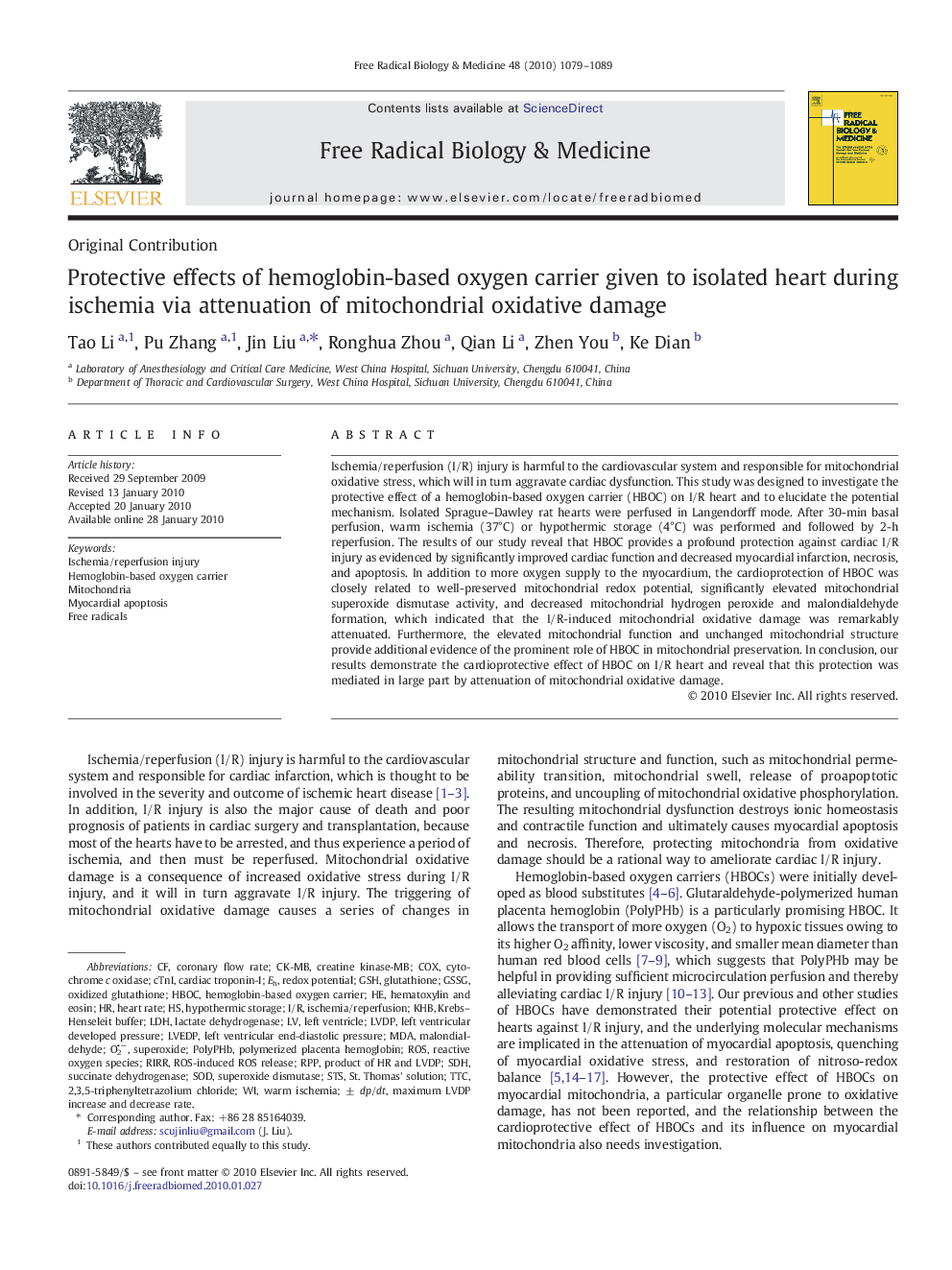| Article ID | Journal | Published Year | Pages | File Type |
|---|---|---|---|---|
| 1909666 | Free Radical Biology and Medicine | 2010 | 11 Pages |
Ischemia/reperfusion (I/R) injury is harmful to the cardiovascular system and responsible for mitochondrial oxidative stress, which will in turn aggravate cardiac dysfunction. This study was designed to investigate the protective effect of a hemoglobin-based oxygen carrier (HBOC) on I/R heart and to elucidate the potential mechanism. Isolated Sprague–Dawley rat hearts were perfused in Langendorff mode. After 30-min basal perfusion, warm ischemia (37°C) or hypothermic storage (4°C) was performed and followed by 2-h reperfusion. The results of our study reveal that HBOC provides a profound protection against cardiac I/R injury as evidenced by significantly improved cardiac function and decreased myocardial infarction, necrosis, and apoptosis. In addition to more oxygen supply to the myocardium, the cardioprotection of HBOC was closely related to well-preserved mitochondrial redox potential, significantly elevated mitochondrial superoxide dismutase activity, and decreased mitochondrial hydrogen peroxide and malondialdehyde formation, which indicated that the I/R-induced mitochondrial oxidative damage was remarkably attenuated. Furthermore, the elevated mitochondrial function and unchanged mitochondrial structure provide additional evidence of the prominent role of HBOC in mitochondrial preservation. In conclusion, our results demonstrate the cardioprotective effect of HBOC on I/R heart and reveal that this protection was mediated in large part by attenuation of mitochondrial oxidative damage.
